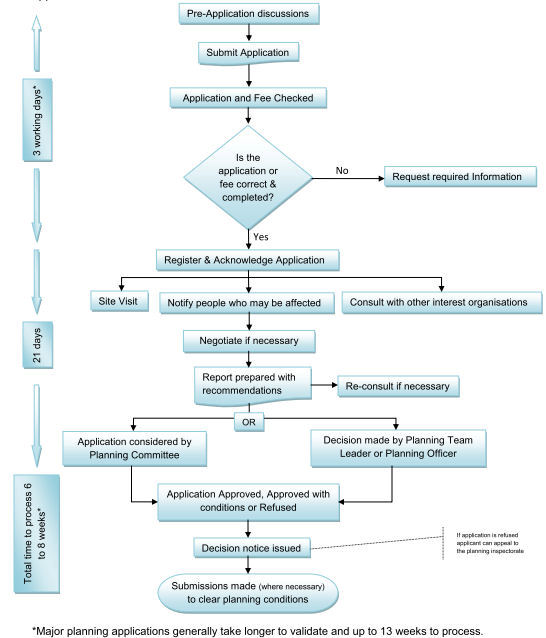Public speaking is only allowed for planning applications on the agenda. Each speaker is allocated three minutes in which to put their case – public speaking will commence after the officer has introduced the application to members. The chairman will firstly introduce the speaker, let the speaker know when the two minute mark has been reached, and after three minutes the chairman will thank the speaker and ask them to return to the public seating. There will be no further opportunity for involvement for speaking or involvement in the debate which follows the public speaking.
If you are notified that you are included on the schedule of public speakers, you should arrive fifteen minutes before the meeting commences and introduce yourself to the committee clerk, who will explain the procedures. If you are not present when the chairman asks you to speak you lose your opportunity to speak.
Speakers' comments should be confined to relevant planning issues, such as:
- residential amenity
- highway safety and traffic
- noise, disturbance, smell
- design appearance and layout
- character of Area
- historic buildings or conservation area issues
- trees and Landscape and
- planning policy (local policy, structure plan, regional spatial strategy and government guidance).
Please avoid non-planning issues such as:
- private property rights
- right to a view
- effect on property values
- developer’s morals / motives etc.
Please do not:
- make statements of a personal, discriminatory or slanderous nature which could result in legal action against you
- be abusive
- interrupt other speakers, or the committee debate.
If this does occur the chairman can curtail your right to speak, and in serious instances the chairman can ask you to leave the room.
Your presentation will be verbal only – no other form of presentation will be allowed (including the passing out of photographs, or handouts).
Members of the committee, through the chairman, may ask questions of clarification from a speaker, but debate at this stage is not allowed.
Applications are normally dealt with in the order in which they occur on the agenda, although the chairman may take them out of order if large numbers of people attend for a particular item. The chairman also has the discretion to vary procedures as necessary to assist the conduct of the meeting.
If the application is deferred to a later meeting, those who spoke first time around will have an automatic right to speak again, or may nominate someone else to speak on their behalf, but must confirm their wish to speak again following receipt of the letter from the council prior to the relevant meeting. If no response is received, the invitation will then be extended to others who have made written representations and requested to speak.

